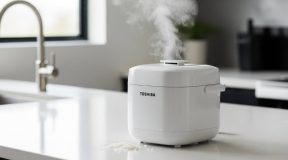If you own a home with a septic system, you know the importance of maintaining it to keep it in good working order. One of the most important aspects of septic system maintenance is regular cleaning. But how often should you clean your septic tank? In this article, we will provide you with a complete guide on how often to do septic tank cleaning.
Understanding Septic Tank Cleaning
Before we delve into the frequency of septic tank cleaning, it’s important to understand what it entails. Septic tank cleaning involves removing the solid waste that accumulates in your septic tank over time. A septic tank typically consists of two compartments that allow for the separation of solid and liquid waste. The solid waste settles to the bottom of the tank and is broken down by bacteria, while the liquid waste flows out of the tank and into the drain field.
Factors Affecting the Frequency of Septic Tank Cleaning
Several factors can affect how often you need to clean your septic tank, including:
Tank Size
The size of your septic tank plays a significant role in determining how often it needs to be cleaned. Smaller tanks fill up faster and require more frequent cleaning, while larger tanks can go longer between cleanings.
Household Size
The number of people living in your home also affects the frequency of septic tank cleaning. The more people, the more waste generated, and the more often you’ll need to clean your tank.
Water Usage
The amount of water used in your home is another factor to consider. The more water you use, the more often you’ll need to clean your septic tank. Excessive water usage can overwhelm your septic system and lead to costly repairs.
Types of Solids
The types of solids that go into your septic tank can also impact how often you need to clean it. For instance, if you frequently dispose of non-biodegradable items such as feminine hygiene products or paper towels, your septic tank will fill up faster and require more frequent cleaning.
How Often Should You Clean Your Septic Tank?
So, how often should you clean your septic tank? The answer varies depending on the factors listed above. As a general rule, it’s recommended that you have your septic tank cleaned every 3-5 years. However, this is just a guideline, and you may need to clean your tank more or less frequently based on your specific circumstances.
Signs That Your Septic Tank Needs Cleaning
In addition to the factors mentioned above, there are also some signs that your septic tank may need cleaning. These include:
- Slow draining sinks or toilets
- Foul odors coming from your drains or yard
- Sewage backup in your home
- Lush, green patches of grass in your yard
If you notice any of these signs, it’s essential to have your septic tank inspected and cleaned as soon as possible to avoid further damage to your system.
The Importance of Regular Septic Tank Cleaning
Regular septic tank cleaning is essential for several reasons. First, it helps prevent costly repairs and system failures. Neglecting your septic tank can lead to backups, leaks, and other issues that can be expensive. Regular cleaning can also extend the life of your septic system, saving you money in the long run.
Additionally, regular septic tank cleaning can help protect the environment. A septic system failure can lead to groundwater contamination and other environmental hazards. By keeping your system well-maintained, you’re doing your part to protect the planet.
Conclusion
In summary, septic tank cleaning is essential to septic system maintenance. How often you need to clean your septic tank depends on several factors, including the size of your tank, the number of people living in your home, and your water usage. As a general guideline, having your tank cleaned every 3-5 years is recommended, but you may need to do it more frequently based on your specific circumstances.
Regular septic tank cleaning is crucial for preventing costly repairs, extending the life of your system, and protecting the environment. If you notice any signs that your septic tank needs cleaning, such as slow-draining sinks or foul odors, be sure to have it inspected and cleaned as soon as possible.





